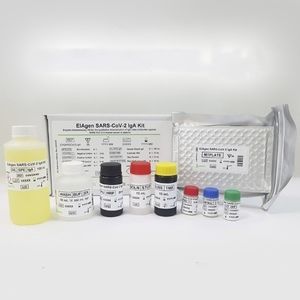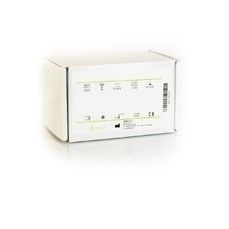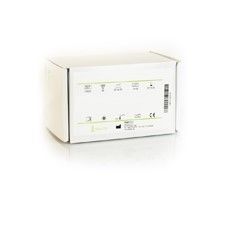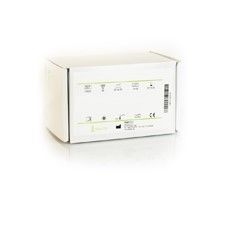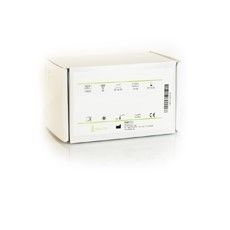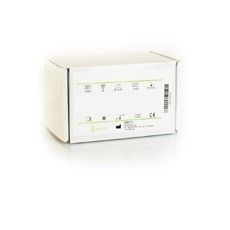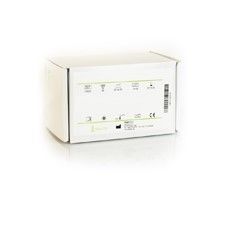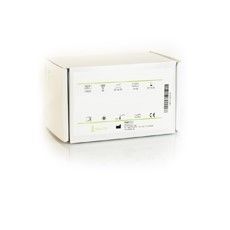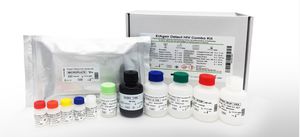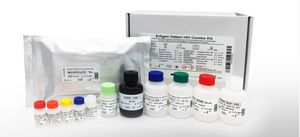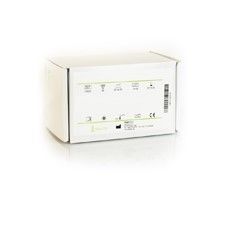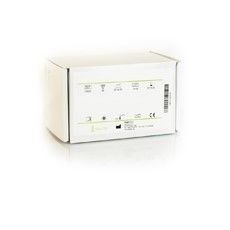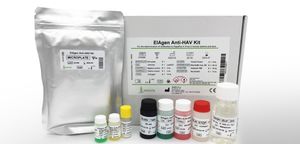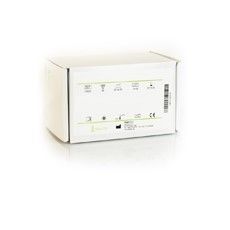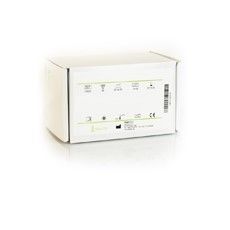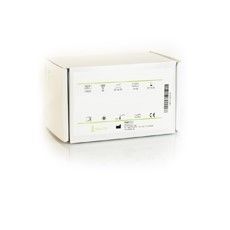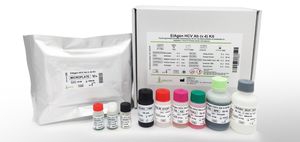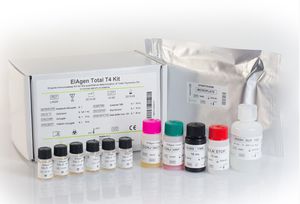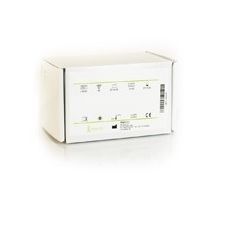
Thyroid stimulating hormone test kit EIAgenfor thyroid diseasesalbuminglobulin
Add to favorites
Compare this product
Characteristics
- Applications
- for thyroid diseases
- Tested parameter
- albumin, globulin, hCG, FSH, thyroid stimulating hormone, luteinizing hormone
- Sample type
- serum, plasma, biological
- Analysis mode
- molecular
Description
The EIAgen U-TSH Kit has been designed for the quantitative determination of human Thyroid Stimulating Hormone (TSH) in human serum or plasma. The standards are calibrated against WHO 2nd International Reference Preparation (IRP) for human TSH (80/558) (1).
Introduction
Thyroid-stimulating hormone (TSH), or thyrotrophin, is a glycoprotein with a molecular weight of about 28,000 secreted by the pituitary gland. TSH is composed of two subunits of approximately equal size, called a and b. Other hormones such as luteinizing hormone (lH) and follicle-stimulating hormone (FSH), both secreted by the pituitary, and chorionic gonadotrophin (hCG), produced by the placenta, have a subunits virtually identical to that of TSH, but there are important differences in their b subunits (2). These differences confer biological specificity on the complete molecules and allow them to be distinguished in immunoassays.
Like the other glycoprotein hormones, TSH has a specific site of action which is the thyroid gland. Its main function is to regulate the release of thyroxine (T4) and the more biologically active triiodothyronine (T3), and to control different stages of their synthesis (4). These thyroid hormones circulate bound to thyroxine-binding globulin (TBG) and to a lesser extent, to albumin and pre-albumin. In their unbound form, they have widespread effects on other organ systems of the body, exerting a general control on the level of metabolic activity (6). They also exert negative feedback on the pituitary, inhibiting the release of TSH.
Synthesis and release of TSH is stimulated by thyrotrophin-releasing hormone (TRH).
Related Searches
- Assay kit
- Solution reagent kit
- Blood assay kit
- Molecular biology reagent kit
- Serum assay kit
- Immunoassay assay kit
- Plasma assay kit
- Infectious disease detection kit
- Diagnostic reagent kit
- Molecular test kit
- Whole blood detection kit
- Respiratory infection test kit
- Clinical assay kit
- Optical assay kit
- Dye reagent
- Fluorescence assay kit
- ELISA assay kit
- Buffer solution reagent kit
- COVID-19 detection kit
- Real-time PCR test kit
*Prices are pre-tax. They exclude delivery charges and customs duties and do not include additional charges for installation or activation options. Prices are indicative only and may vary by country, with changes to the cost of raw materials and exchange rates.





